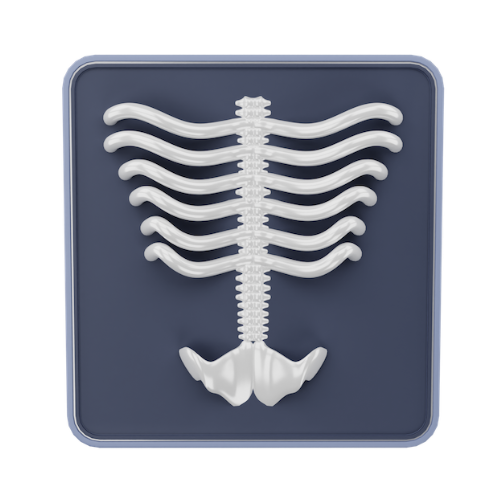Table of Contents
Ever wonder why your cough turns into a 10-part horror series the moment your head hits the pillow?
You’re not alone. Coughing at night, also known as a nighttime cough, is one of the most common sleep disruptors among Aussies, especially during winter. That tickle in your throat can feel like it has a personal vendetta.
If you’re lying awake in Australia at 2 a.m. Googling “why are coughs worse at night?” –this guide is for you.
Let’s uncover what’s really behind that late-night hacking, what’s normal, and when to seek help.
Why Are Coughs Worse at Night?
The short answer: gravity, triggers, and your body’s internal chaos.
The long answer? Let’s break it down:
1. You’re Lying Flat
As you lie down, mucous may accumulate in the back of your throat or the postnasal drip may drip more easily. This also causes a sore throat to your airways and makes you experience that same old annoying cough-cough-cough.
2. GERD (Reflux) Creeps Up
A gastroesophageal reflux disease (GERD) occurs when the stomach acid travels back up to your throat when you are lying down. It’s a sneaky but major cause of coughing at night.
Acid can irritate your larynx and esophagus, triggering a dry, persistent cough–even if you don’t feel heartburn. This is more common in adults, especially those who eat late or consume spicy or fatty foods.
3. Asthma and Allergies Act Up
Nighttime is asthma’s playground. Airways tend to become narrow at night, and in the presence of bedroom allergens (dust mites, pet dander, or mold), the situation can only be worsened.
Individuals with asthma or allergic rhinitis notice that their coughing gets worse at night especially when they lack proper pillow hygiene or ventilation of the bed.
See to it that you allergy-proof your bedroom and wash bedding once a week using hot water.
4. Dry Air = Dry Cough
During winter or with the help of indoor heaters, room air in your bedroom may become excruciatingly dry. This annoys the throat and results in development of dry cough.
This differs with that of a wet cough which is the one that raises the mucus and is likely caused by infection. By knowing the difference between dry cough vs wet cough, you can know whether your cough is post-viral, environmental or worse.
5. Underlying Health Conditions
Some serious conditions can also lead to persistent night coughing, including:
- COPD (Chronic Obstructive Pulmonary Disease)
- Sleep apnea
- Chronic bronchitis
- Lung infections like pneumonia
- Whooping cough
- Lung cancer (rare, but important to rule out)
When your cough persists beyond 3 weeks or when it becomes severe at night then it is time to consult a doctor especially when accompanied by loss of weight.
Telehealth options will allow you to speak to an Australian-licensed doctor in order to receive faster assistance without having to leave your home.
The Way to Eliminate Night Coughs
Okay, homie, now that we are aware of what is happening; how do we remedy it? Here’s how to stop coughing at night like a pro:
1. Elevate Your Head
Gravity is your enemy. Use an extra pillow or adjustable bed to keep your upper body raised–this helps prevent both mucus pooling and acid reflux.
2. Allergy-Proof Your Bedroom
- Wash bedding once a week in hot water
- Put on hypoallergenic pillow-cases
- Do not keep pets on bed
- Regularly cleaning of the fans, vents and carpets
- Consider using an air purifier in case it is necessary
3. Avoid Late-Night Eating
Avoid eating spicy or oily food at least 2 hours before bed. GERD loves late-night snacks.
And no: chocolate, caffeine, alcohol, or fizzy drink–all of which weaken your esophageal sphincter.
4. Try Natural Cough Remedies
- Warm honey + lemon water before bed
- Ginger or chamomile tea
- Humidifier to moisten dry air
- Saltwater gargle
- Inhalation of steam
Note: Kids under 1 should never be given honey.
5. Use the Right Meds (But Talk to a Doctor First)
- Antihistamines for allergies/postnasal drip
- Cough suppressants for dry coughs
- Expectorants for wet coughs
- Inhalers for asthma
- PPIs or antacids for reflux-related coughing
Use a telehealth consultation to get prescriptions or professional advice fast–especially if your symptoms worsen at night.
6. Fix Your Sleep Hygiene
- Set consistent sleep times
- Put away the screens 30 min before going to bed
- Restrict drinks containing alcohol and caffeine
- Bedroom should be cool and dark
Poor sleep worsens everything–including cough recovery.
When to See a Doctor
See a doctor if:
- Your cough lasts longer than 3 weeks (chronic cough)
- You have a fever, chest pain, or shortness of breath
- You feel wheezing or tightness in the chest
- You’re not sleeping at all due to coughing
Coughing could be a symptom of bronchitis, pneumonia, asthma, or even lung cancer. Don’t self-diagnose if it persists.
When in Doubt, Use Telehealth
You don’t need to sit in a waiting room coughing into your elbow. Many Australians are now turning to telehealth for cough-related consults.
It’s perfect if:
- You’re unsure if it’s serious
- You want fast access to medication
- You’re isolating or avoiding clinics
- You have kids coughing at night
Final Thoughts
Coughing at night can be more than just annoying–it could be a sign of something deeper. Whether it’s allergies, reflux, or something more, the good news is: there’s help.
Start with home remedies, improve your sleep environment, and don’t hesitate to book a telehealth consult to get professional advice–from the comfort of your doona.
Need help now? Book a secure video consult with one of our Aussie GPs–no long wait times, no parking stress.
References:
- Healthdirect Australia. (2024, April 4). Cough. Types, Treatments and Remedies | Healthdirect.
https://www.healthdirect.gov.au/cough - GERD Diet: Foods That Help with Acid Reflux (Heartburn). (2025, January 2). Johns Hopkins Medicine.
https://www.hopkinsmedicine.org/health/wellness-and-prevention/gerd-diet-foods-that-help-with-acid-reflux-heartburn - Godman, H. (2023, August 1). Why are you coughing at night? Harvard Health.
https://www.health.harvard.edu/diseases-and-conditions/why-are-you-coughing-at-night - Szabo, B. (2024, August 16). The asthma cough. Asthma Australia.
https://asthma.org.au/blog/the-asthma-cough/













